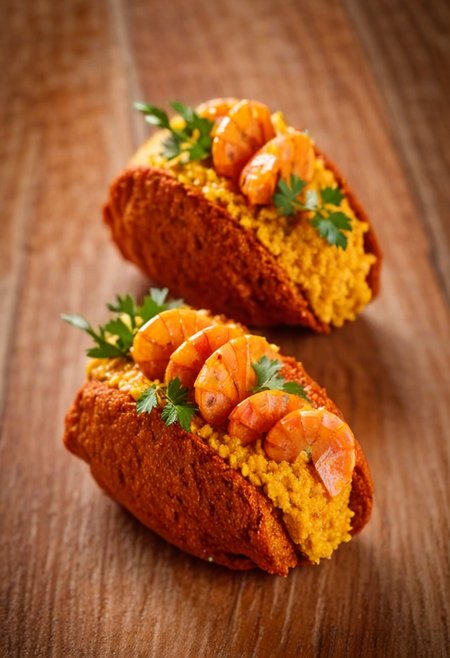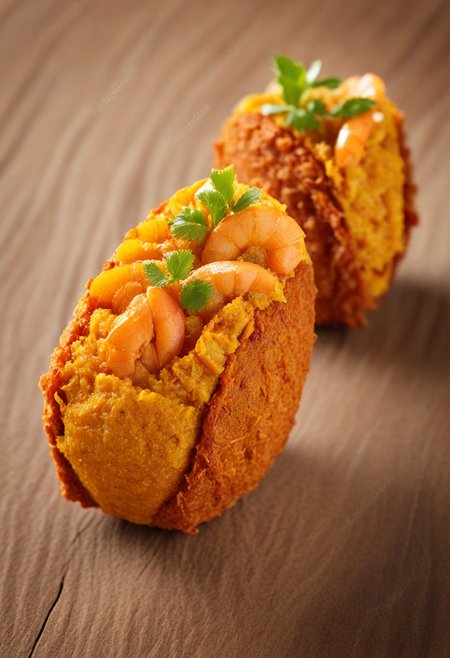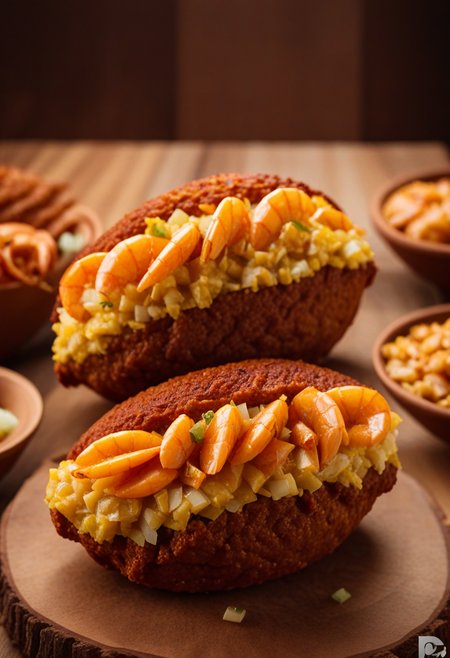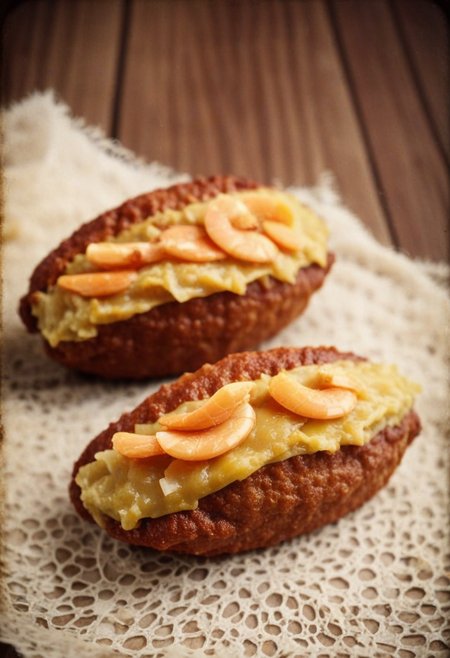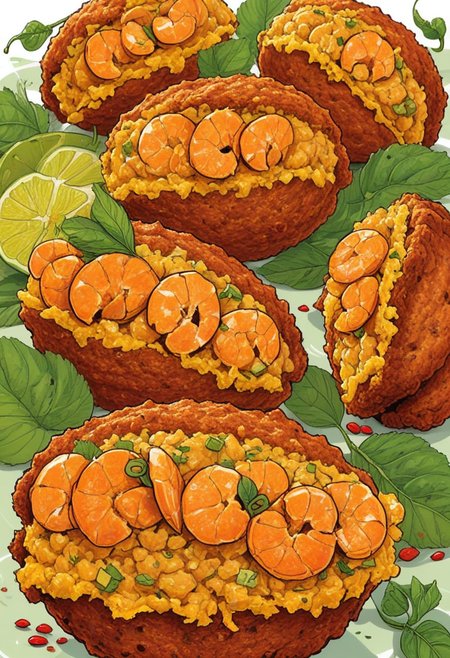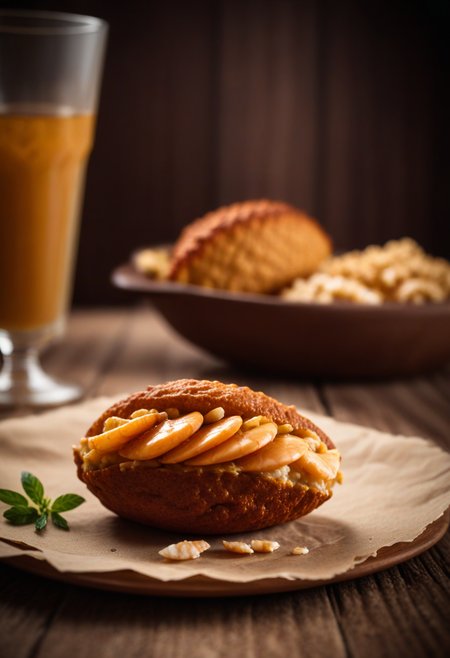Weights: 0.7 - 1.2
Keywords: acarajé; acaraje
Àkàrà (Yoruba) (English: bean cake; Hausa: kosai; Portuguese: acarajé (Portuguese pronunciation: [akaɾaˈʒɛ] ) is a type of fritter made from cowpeas or beans (black-eyed peas) from Yorubaland in Nigeria, Togo and Benin. It is found throughout West African, Caribbean, and Brazilian cuisines. The dish is traditionally encountered in Brazil's northeastern state of Bahia, especially in the city of Salvador. Acarajé serves as both a religious offering to the gods in the Candomblé religion and as street food. The dish was brought by enslaved peoples from West Africa, and can still be found in various forms in Nigeria, Ghana, Togo, Benin, Mali, Gambia, Burkina Faso and Sierra Leone.
Àkàrà is a Yoruba word meaning "pastry", or the dish itself. The Brazilian term "acarajé" derives from either the Yoruba word combinations "àkàrà" (bread) and "onje" (food), or "àkará" (a round pastry) and "je" (to eat). Márcio de Jagun states that the word is derived from the Yoruba àkàrà n'jẹ, or "come and eat àkàrà"; the phrase was used to call out to customers by women selling acarajé on the street.
Credits
Description adapted from Wikipedia: https://en.wikipedia.org/wiki/Akara.
Images generated using weight 1.0 and with Sintetico XL as base model.
Description
First release.
